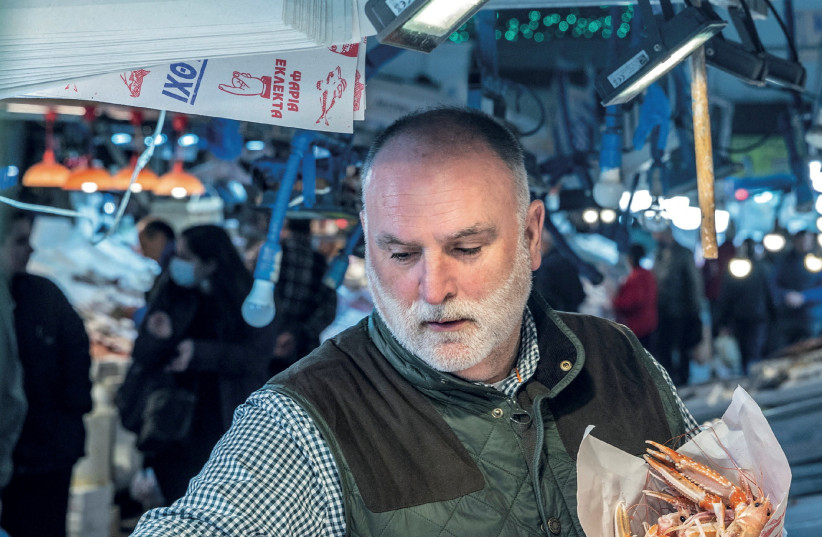The celebrity chef behind the nonprofit whose aid workers were killed in an IDF strike on Tuesday is appealing to Israel and the Jewish people to address the humanitarian crisis in Gaza.
In an op-ed published simultaneously Wednesday in Yedioth Ahronoth, an Israeli newspaper, and The New York Times, World Central Kitchen founder Jose Andres laments the killings and names the seven workers who died. He also calls on Israel to open land routes to deliver aid to hungry Gazans and says his organization’s work in Israel after Hamas’ Oct. 7 attack makes him confident that the current conditions can change.
“We know Israelis. Israelis, in their heart of hearts, know that food is not a weapon of war,” Andres writes. “Israel is better than the way this war is being waged. It is better than blocking food and medicine to civilians. It is better than killing aid workers who coordinate their movements with the IDF.”
Israel says the killing of the humanitarian workers was an unintentional error. The incident has intensified pressure on the country, including from its allies, to improve aid delivery in Gaza and shield civilians from harm.
Andres, a longtime successful restauranteur, launched World Central Kitchen in 2017 after a devastating hurricane in Houston. It has since become one of the boldest disaster relief organizations in the world, providing meals to people in crisis zones even when other aid groups have held back, and the work has earned Andres accolades and awards. In Israel, he says, his group served 1.75 million hot meals in the aftermath of the Oct. 7 attacks, and before suspending operations on Tuesday, it had served more than 43 million meals in Gaza at a time when humanitarian groups are warning of an impending famine.

Andres acknowledges Oct. 7 attack but also increasing aid to Gaza
In his op-ed, Andres’ comments, he calls for an end to the war but not an immediate ceasefire, which Israel has rejected because it would leave Hamas in power in Gaza. He also acknowledges the grievous attack that Israel faced on Oct. 7 — and says it should animate a stronger humanitarian effort in Gaza, where the Israeli army has been waging a ground war for more than five months in response.
“In the worst conditions, after the worst terrorist attack in its history, it’s time for the best of Israel to show up,” Andres writes. “You cannot save the hostages by bombing every building in Gaza. You cannot win this war by starving an entire population.”
Andres’ piece concludes by referencing the upcoming Passover holiday, when Jewish families around the world will sit down to seder meals that feature both ample food and a liturgy that addresses hunger.
“I have been a stranger at seder dinners. I have heard the ancient Passover stories about being a stranger in the land of Egypt, about remembering – with a feast before you – that the children of Israel were once slaves,” Andres concludes. “It is not a sign of weakness to feed strangers; it is a sign of strength. The people of Israel need to remember, at this darkest hour, what strength truly looks like.”
